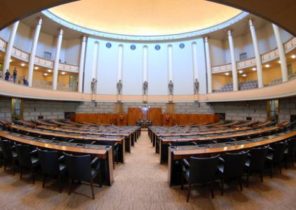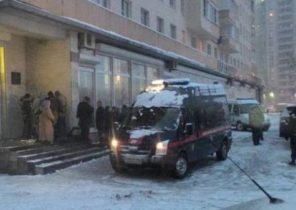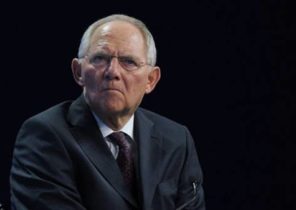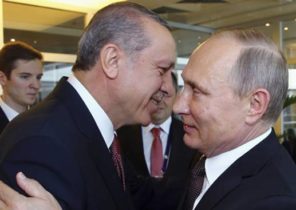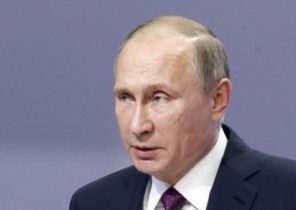
Relations between Russia and the United States have bottomed out under President Obama — and there they remain when trump said a senior Russian politician newspaper Politiken ahead of the summit in Hamburg.
The summit will meet two of the most powerful man in the world. But it would be naive to expect anything significant from the meeting, which will take place this week between the presidents of Donald trump and Vladimir Putin in Hamburg, I think both Russian and American experts on security policy.
“Almost pointless to hope for a full and constructive negotiations”, — said Konstantin Kosachev, a state Duma Deputy, Chairman of the Federation Council Committee on international Affairs, to the newspaper Politiken.
In his opinion, positively, that the two presidents will meet, and will be able to “sit together, talk, get to know each other, look each other in the eye.” But the Russian MP believes that, given the hype around the alleged Russian interference in U.S. elections, Donald trump will “fear the consequences of a constructive meeting.”
“If they just agreed to scheduled, complete the meeting in a month or two, it will be a positive development,” said Kosachev.
On the question of whether relations between Russia and the United States better or worse than six months ago, when trump was not yet President, Russian MP says:
“All as bad as it was. They reached the bottom under Obama and remain to this day”.
The conference in Moscow
The answer is quite well reflects the gloomy mood that prevailed among the experts on political security from Russia, USA and Europe at a conference in Moscow last week. It was called “Primakov read” in memory of the late Russian foreign Minister and Prime Minister Evgeny Primakov.
At the conference, several presenters talked about the cold war number two as a fact. Sounded warnings about a nuclear Holocaust. Many have described the situation more dangerous than during the previous cold war, as now there are more actors, and because the communication is worse now than at the time was between the United States and the Soviet Union. As an example, cited the dialogue between the superpowers in the 1970s and 1980s, which also led to the signing in 1975 of the Helsinki Declaration on security and cooperation in Europe.
“Relations between the US and Russia are in ruins. And very likely, they will become worse” — so began the speech of the first speaker, an American expert on disarmament Robert Legvold (Robert Legvold).
“I agree with the statement that will be even worse. I have no optimism about this,” confirmed the next speaker Sergei Rogov of the Institute of USA and Canada studies in Moscow.
“Nuclear war is no longer considered as something catastrophic. It again has become a political tool and a means to influence the crisis,” said Russian expert on disarmament and Alexei Arbatov noted that Russia and the United States for the first time are at war in the same country of Syria without being allies, not coordinating their actions and reaching agreement on one of the other actors of the conflict to be considered enemies and who friends.
Optimist Henry Kissinger
Sound, however, and a more optimistic message. Especially from a former Minister of foreign Affairs Henry Kissinger (Henry Kissinger), who recalled that between the US and Russia used to have periods of tension, but they always managed to overcome.
“Based on the many crises I’ve experienced, I’ve always been convinced that Russia and the United States will eventually come to an agreement that they must unite in a joint effort. Now we come to this moment,” said Kissinger.
American disarmament expert Richard Burt (Richard Burt), who participated in writing the most important speeches trump about foreign policy ahead of the elections, spoke of “very, very difficult time.” But at the same time, he pointed out that from the most intense years of the cold war, in 1983, to the signing of the INF Treaty in 1987, when presidents Ronald Reagan and Mikhail Gorbachev came to agreement about the elimination of the two superpowers of all intermediate and short range, it’s only been four years.
To date Russia has violated the INF Treaty, and the United States withdrew from the Treaty on the limitation of anti-ballistic missile systems of 1972, and a fresh new start Treaty of 2010 on the strategic nuclear arms, it seems, was also at risk.
In parallel, the US and Russia argue about unacceptable interference in the internal Affairs of each other, hacking, propaganda, mutual sanctions, military exercises, deployment of troops and weapons in Eastern Europe, missile defense, Ukraine and Syria.
Both sides do not attach importance to the meeting
Thus, not enough of the fact that Putin and trump will meet for the first time in connection with the G20 summit in Hamburg. Both sides hope to lay on a full-scale meeting than a casual conversation in the hallway, few expect something like a breakthrough.
“The meeting could have positive consequences simply because they will be able to see each other in the eye, to talk, to appreciate each other. But as for substantive content, little can be achieved in a week when nothing was prepared in advance,” said Professor Emeritus Robert Legvold the newspaper Politiken.
Neither Moscow nor Washington don’t do much to present this meeting as important.
Yuri Ushakov, Putin aide on foreign Affairs, said on Friday that Putin “will try to find time in his very busy schedule for a very important and necessary meetings with Mr. trump.”
The day before trump’s Advisor on national security Herbert McMaster (H. R. McMaster) said that there was no special agenda, and that no meeting with Putin “will not be something different than meeting with any other country” within the framework of the G20 summit.
“As President, he would like to see the US and the West have developed a more constructive relationship with Russia, but he also made clear that they will do all that is necessary to counter the destabilizing behavior of Russia,” said McMaster on Thursday.
